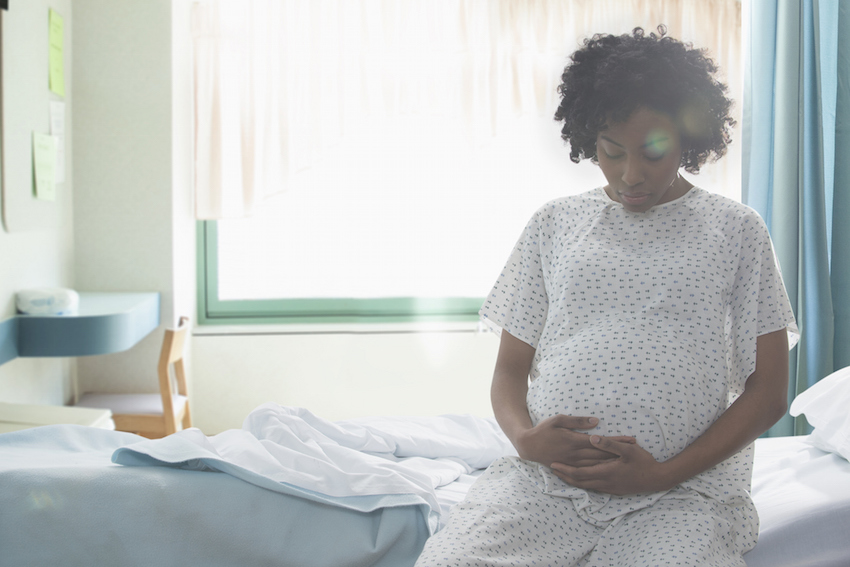IT WILL be impossible to imagine the pain of losing a baby unless you have experienced it. The confusion, anxiety, and grief cannot, and should not be compared to other losses. Baby Loss Awareness Week is a vital recognition of the suffering that so many women, their partners and families go through. Yet this year, it takes place against the backdrop of a global pandemic.
We are very lucky in the UK to have a world-class maternity service, and while it is of little consolation to those who have suffered, we can be reassured by the fact that baby loss is a rare event. However, research shows that Black women are still five times more likely to die during pregnancy and childbirth than white women.
Addressing inequalities
To address inequalities in maternity safety during the pandemic, local maternity services were tasked with increasing support for women from diverse backgrounds. This included bespoke communications, signposting local services for women and their families and encouraging them to seek help if they had any concerns. Nutrition is also key for a healthy pregnancy, and hospital maternity staff were reminded to discuss nutritional matters with expectant mothers while logging any risk factors which may impact healthy pregnancies.
It is also so important that we raise awareness of this disparity, and complications that can arise as a result. Last month, the minister for equalities, Kemi Badenoch, hosted the second of two roundtable meetings, attended by BAME maternity service users, providers and other experts. They came together to consider the disparity in morbidity and mortality outcomes between BAME and white pregnant women, as well as differences in their experiences of care.
“I also recognise how vital it is that women have the support of those that they love during appointments, and the birth itself”
This was a vital conversation, but I now want to see further action taken to identify, mitigate and eradicate these inequalities so that all mothers receive the same access, range of services and high standards of care.
That’s why, this week, I’ve brought together a diverse group of experts and service users including people of Black and South Asian ethnicity to oversee this work. Together, we will review and monitor policies, plans and projects across the health system to make sure we are doing everything we can to serve the needs of mothers and their babies.
New policy
One key issue that we are already tackling, is a new policy to make sure that expectant mothers have the same midwife before, during and after pregnancy. NHS England has begun rolling out continuity of care, focusing on areas of greatest economic and social deprivation, meaning more mothers, regardless of ethnicity, will benefit. The aim is that for most women, this will be in place across the country by 2024.
Pregnancy is not a purely physical experience – it takes its toll on the mind too. Maternity outreach clinics, reproductive health and psychological therapy for women experiencing mental health difficulties related to pregnancy will be introduced in the months ahead. Expect to also see new smoke-free pregnancy support for expectant mothers and their partners, so we can give each and every baby the best chance from the start.
I also recognise how vital it is that women have the support of those that they love during appointments, and the birth itself. We have recently published new guidance to assist hospitals to reintroduce access for partners, visitors and other supporters of pregnant women in maternity services in England. I know the NHS is working hard to improve access wherever possible, at such a sensitive and emotional time.
If some good is to come out of this pandemic, it will be to shine a light on inequalities of all kinds and strengthen our resolve to overcome them. We are a vibrant, diverse and constantly evolving nation. Our health and care services must likewise evolve to reflect, protect and support our citizens whatever their ethnicity, background or circumstance.


Comments Form
1 Comment
‘Our health and care services must evolve to reflect, protect and support our citizens whatever their ethnicity.’ Impossible as most Caucasian-heritage people display great difficulties overcoming the African-skin colour of African-heritage men; women and youth and this failure prevents Caucasian institutions from treating African-heritage people correctly.
“Can a leopard change his spots,” asked the African-skinned wise King Jerusalem King?